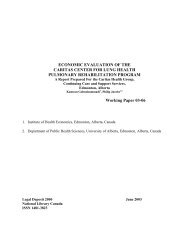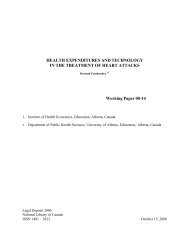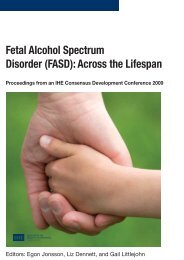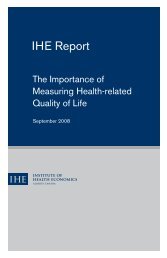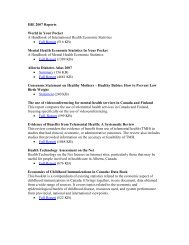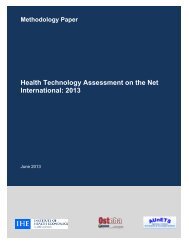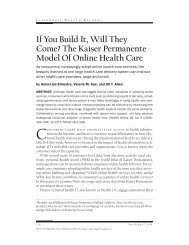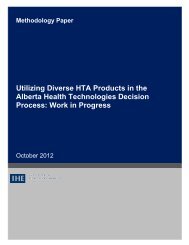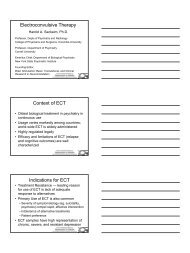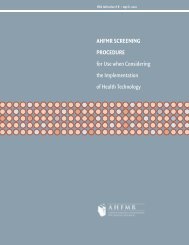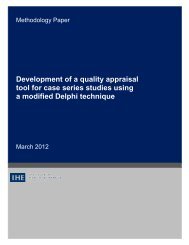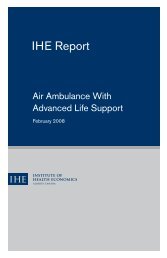Bariatric treatments for adult obesity - Institute of Health Economics
Bariatric treatments for adult obesity - Institute of Health Economics
Bariatric treatments for adult obesity - Institute of Health Economics
- No tags were found...
Create successful ePaper yourself
Turn your PDF publications into a flip-book with our unique Google optimized e-Paper software.
greater reduction <strong>of</strong> weight and BMI. Increasing the intensity <strong>of</strong> exercise resulted in increased weightloss if participants were not on a dietary therapy; high-intensity exercisers lost 1.5 kilograms morethan did low-intensity exercisers. However, if exercisers were also on a dietary therapy, high exerciseintensity did not increase weight loss compared to low exercise intensity.A subgroup analysis by gender did not show any relevant changes in pooled estimates. Analysis byage demonstrated that, as compared to the dietary-therapy-alone group, the pooled effect <strong>for</strong> weightreduction in the exercise and diet group was 1.6 kilograms more <strong>for</strong> participants with a mean age <strong>of</strong>45 years or less, and 1.0 kilograms more <strong>for</strong> participants with a mean age greater than 45 years. Nosubgroup analysis was conducted based on BMI cut<strong>of</strong>fs.The other review 58 <strong>of</strong> <strong>adult</strong>s with a BMI greater than 25 kg/m 2 showed that the combination <strong>of</strong>dietary therapy and physical exercise resulted in a mean weight loss approximately 20% greater thanthat experienced by the dietary-therapy-alone group, both immediately after the intervention periodand after 1 year follow-up; these difference were not statistically significant. In both groups, themagnitude <strong>of</strong> weight reduction immediately after intervention and after 1 year <strong>of</strong> follow-up iscompatible with clinically significant benefits; that is, with a reduction in <strong>obesity</strong>-related risk factors.However, <strong>adult</strong>s in both groups regained 50% <strong>of</strong> their lost weight after 1 year. Adding exercise todiet did not produce better long-term maintenance <strong>of</strong> the weight losses.Behavioural therapyDescription <strong>of</strong> the included studiesThe only systematic review 15 in this category assessed 36 RCTs <strong>for</strong> the effects <strong>of</strong> variouspsychological interventions on weight loss in 3495 overweight and obese <strong>adult</strong>s (Table T.F.1-2). Theincluded studies were heterogeneous in terms <strong>of</strong> participants, interventions, outcome measures, andsettings. Most studies had a follow-up period <strong>of</strong> less than 12 months. Studies with an attrition ratehigher than 15% were excluded in this review.Methodological quality and limitationsAll 36 RCTs suffered from some methodological weakness. Only two studies reported the method<strong>of</strong> randomization. Blinding <strong>of</strong> investigators to outcomes was not clear or not done in all but onestudy. Sample sizes in many studies are small. Intention-to-treat analysis was per<strong>for</strong>med in only threestudies. Only one study met all the quality criteria.EffectsMain findings from this systematic review are summarized in Table T.7.<strong>Bariatric</strong> <strong>treatments</strong> <strong>for</strong> <strong>adult</strong> <strong>obesity</strong> 81



